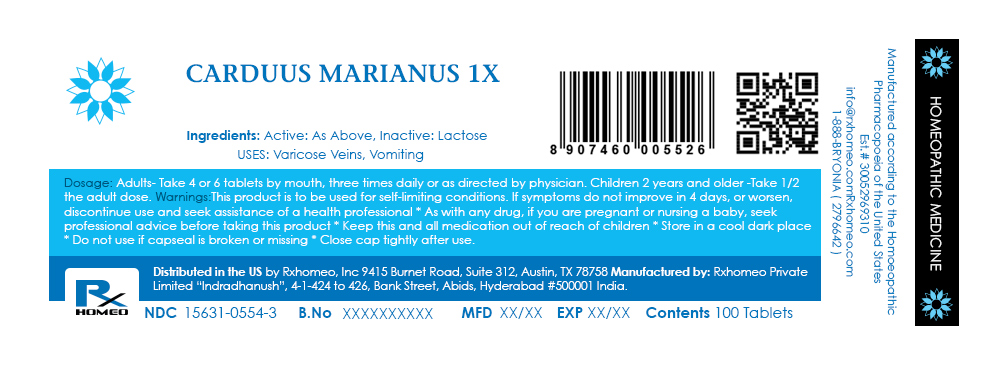
Carduus Marianus Tablet while Breastfeeding
What is Carduus Marianus Tablet used for?
Brief: USES Varicose Veins, Vomiting
Is Carduus Marianus Tablet usage safe while breastfeeding? If a lactating mother is using it can there be any effect on growth or development of infant?

Note: Due to high dilution of active ingredients in homeopathic medicines most homeopathic medicines are safe while breastfeeding.
Carduus Marianus Tablet Breastfeeding Analsys
Milk thistle while Breastfeeding
SafeCAS Number: 65666-07-1
Milk thistle is a herb from which its fruits are used. It contains flavonolignans, silymarin and especially silibinin isomers, silychristin and silydianin, flavonoids, steroids and estrogen-like compounds. Attributed properties: Liver Protector.Indications based on the Commission E of the German Ministry of Health: cholelithiasis, liver disorders. Devoid of toxicity. It is excreted into breast milk in little or no amount.There is no evidence of its effectiveness as a galactogogue. Two studies have been performed (one with cows and the other with women) trying to show a galactogogue effect, but both are limited by a very flawed methodology.Best galactogogue is a frequent and on-demand breastfeeding together witn an appropriate technique. Precaution is recommended before taking herbal infusions:1. Ensure a reliable source: poisoning occurred by confusion with another plant that resulted to be toxic, poisoning from heavy metals and food poisoning by contamination with bacteria or fungi.2. Avoid excessive consumption. The "natural" products are not good in any amount: plants contain active substances from which come out much of our traditional pharmacopoeia and can cause poisoning if eaten in exaggerated quantity or prolonged time.
Carduus Marianus Tablet Breastfeeding Analsys - 2
Milk thistle while Breastfeeding
CAS Number: 84604-20-6
Milk thistle (Silybum marianum) contains silymarin which is a mixture of flavonolignans, mainly silibinin (also known as silybin), as well as silycristine, silydianin, quercetin and taxifolin.[1] Silymarin is a standardized preparation extracted from the fruits (seeds) of milk thistle. Milk thistle is a purported galactogogue,[2] and is included in some proprietary mixtures promoted to increase milk supply; however, no scientifically valid clinical trials support this use.[3][4][5] Although a study on the high potency purified milk thistle component, silymarin, and a phosphatidyl conjugate of silymarin indicated some galactagogue activity, this does not necessarily imply activity of milk thistle itself. Galactogogues should never replace evaluation and counseling on modifiable factors that affect milk production.[6] Limited data indicate that the silymarin components are not excreted into breastmilk in measurable quantities. Additionally, because silymarin components are poorly absorbed orally, milk thistle is unlikely to adversely affect the breastfed infant. Milk thistle and silymarin are generally well tolerated in adults with only mild side effects such as diarrhea, headache, and skin reactions. It might increase the metabolism of some drugs. Rarely, severe allergies and anaphylaxis are reported. Avoid in patients with known allergy to members of the aster (Compositea or Asteraceae) family, such as daisies, artichokes, common thistle, and kiwi because cross-allergenicity is possible. Dietary supplements do not require extensive pre-marketing approval from the U.S. Food and Drug Administration. Manufacturers are responsible to ensure the safety, but do not need to the safety and effectiveness of dietary supplements before they are marketed. Dietary supplements may contain multiple ingredients, and differences are often found between labeled and actual ingredients or their amounts. A manufacturer may contract with an independent organization to verify the quality of a product or its ingredients, but that does certify the safety or effectiveness of a product. Because of the above issues, clinical testing results on one product may not be applicable to other products. More detailed information #about dietary supplements# is available elsewhere on the LactMed Web site.
What should I do if I am breastfeeding mother and I am already exposed to Carduus Marianus Tablet?
Homeopathic medicines usually do not cause harmful effects on breastfed babies. Carduus Marianus Tablet is a homeopathic medicine and if your baby does not have any abnormal symptoms then there is nothing to worry about. Some homeopathic medicines contain alcohol (ethanol) and such homeopathic medicines in high dosage can have bad effect on development of baby.
I am nursing mother and my doctor has suggested me to use Carduus Marianus Tablet, is it safe?
Homeopathic medicines are usually safe in breastfeeding and if Carduus Marianus Tablet has been recommended by doctor then there should be no doubt about its usage in breastfeeding.
If I am using Carduus Marianus Tablet, will my baby need extra monitoring?
Not really.
Who can I talk to if I have questions about usage of Carduus Marianus Tablet in breastfeeding?
US
National Womens Health and Breastfeeding Helpline: 800-994-9662 (TDD 888-220-5446) 9 a.m. and 6 p.m. ET, Monday through Friday
UK
National Breastfeeding Helpline: 0300-100-0212 9.30am to 9.30pm, daily
Association of Breastfeeding Mothers: 0300-330-5453
La Leche League: 0345-120-2918
The Breastfeeding Network supporter line in Bengali and Sylheti: 0300-456-2421
National Childbirth Trust (NCT): 0300-330-0700
Australia
National Breastfeeding Helpline: 1800-686-268 24 hours a day, 7 days a week
Canada
Telehealth Ontario for breastfeeding: 1-866-797-0000 24 hours a day, 7 days a week
